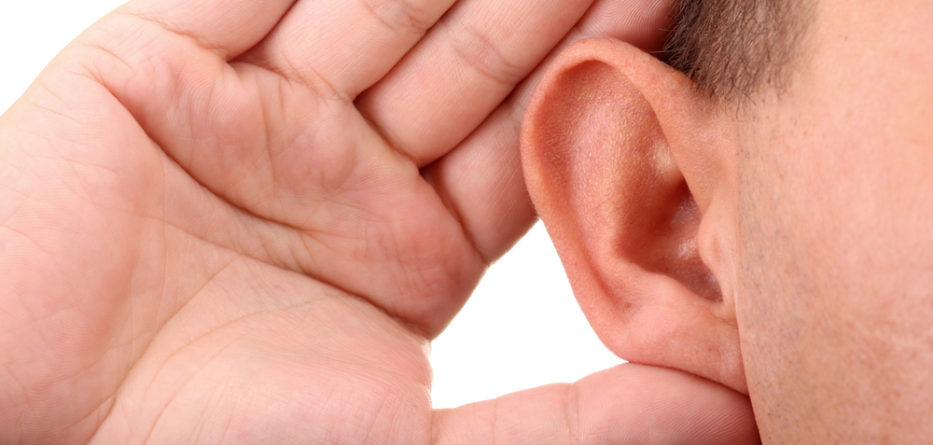The Centers for Disease Control (CDC) reports that 72 million Americans seek medical treatment for injuries each year. People can be injured or become ill at home, in their community, or at work. It is estimated that workplace injuries and illnesses alone cost the economy $192 billion each year.
Both injuries and illnesses can cause a loss of hearing. If you suffer a hearing impairment due to a workplace incident or someone’s negligence, you may be eligible for compensation. The following information can ensure that you’re prepared to file a personal injury claim for hearing loss.
What is hearing loss?
Hearing loss refers to the inability to hear normally. Decibels measure sound and decibels hearing loss (db HL) are used to determine what classification applies to your hearing. A loss of more than 15 dB HL but less than 26 dB HL is considered slight hearing loss. Moderate loss of hearing is a loss of between 41 and 55 dB HL. Profound hearing loss occurs when you have 90 dB HL or more. A hearing test determines your dB HL.
What can cause hearing impairment?
Hearing impairment can be caused by exposure to loud sounds, such as power tools or loud music. Prolonged exposure to these irritants can cause permanent damage. You may also suffer damage if you’re exposed to more than 120 dB sounds, such as fireworks or sirens.
People can also develop hearing problems from traumatic brain injuries (TBIs) or some medications. Chemotherapy drugs, some antibiotics, and exposure to some chemicals can also result in loss of hearing.
It’s also possible to lose your ability to hear as a result of illness. Otosclerosis and Ménière’s disease can both cause hearing problems.
Who can diagnose a hearing issue?
Audiologists at US hearing aid centers are medical doctors who specialize in diagnosing and treating hearing issues. Your audiologist will perform a hearing test to determine if you have suffered a loss of hearing. They are qualified to identify the cause of your hearing problems and identify your treatment options. In some cases, loss of hearing may be reversible, but your prognosis will depend on the severity and nature of your impairment. You may also be able to mitigate your loss with surgery or hearing aids. There are many ways of getting back better hearing if you’ve suffered a loss of hearing, so be sure to have a hearing test and consult with a hearing aid specialist about the new hearing aids that are available.
Who is responsible for your hearing impairment?
If your hearing issues are the direct result of others’ actions or negligence, they may be responsible for your hearing impairment.
An employer might be responsible if you were exposed to loud noises in the workplace without being supplied with appropriate safety equipment, such as earplugs or noise-canceling headphones. Your employer may also be responsible for your hearing issues if you were exposed to chemicals that cause loss of hearing while at work. Loss of hearing from workplace exposures is almost always permanent.
A business or organization might be responsible for your hearing issues if they exposed you to loud sounds or chemicals. Individuals may also be at fault if they acted in a harmful manner that affected your hearing, such as firing a gun that was placed near your head.
It is also possible to get cancer from exposure to toxins. If you lose your hearing after taking chemotherapy drugs and can establish that your cancer was caused by a company or individual illegally disposing of toxic substances, you may be eligible for compensation.
Who can provide legal help?
A personal injury attorney is a lawyer who specializes in working with individuals who have sustained injuries through the actions of others. Personal injury attorneys typically offer a free consultation, which means you can take time to discuss your potential case with different lawyers before choosing a personal injury attorney. This will ensure you feel comfortable with your injury attorney and are confident in their ability to handle your personal injury case.
Personal injury attorneys have experience gathering evidence and building a case for personal injury cases. They are also familiar with all of the compensation you may be eligible for and can take steps to ensure you receive the maximum amount of compensation possible. You want to make sure you have the right personal injury lawyer, with plenty of trial experience and knowledge of this specific area of law. Finding the right attorney should be top priority, because those years of experience can really make a difference when it comes to getting your best interests taken care of.
What will you need for your case?
You will need medical records to support your case. You may also need workplace records, photographs, or other forms of documentation to support your claim. For example, if you lost your hearing because of a TBI sustained in a car accident, a police report and news articles can support your claim. You may also need to identify witnesses who your personal injury attorney can interview.
















